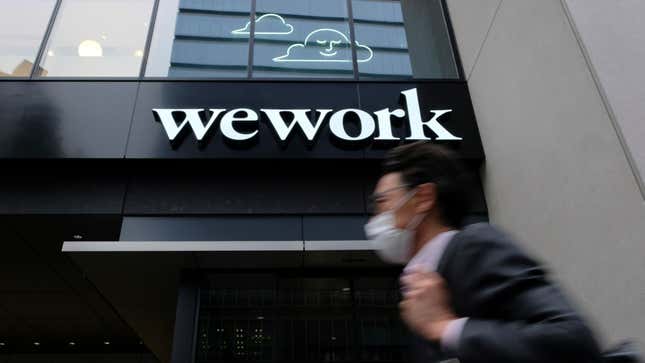
Like a person cradling an ember in their palms for 14 gusty months, WeWork is clinging to the last hope of reviving WeWork. The We Company (the official name since January 2019) has announced that it’s changing its name back to WeWork, the “latest milestone in the company’s efforts to focus on its core product and cement itself as a global end-to-end business solutions leader.”
But is it enough to save them from insolvency?
Let’s review last year’s spectacular tech grift. There were the early warnings, like the lavish 2018 summer camp that turned out to be more like the Fyre Fest for regular employees. There was the March 2019 report that WeWork lost $1.9 billion in 2018, on revenue of $1.8 billion. The big red flag CEO Adam Neumann flew last July when he cashed out over $700 million in stock options ahead of the planned IPO. The revelations of wild mismanagement and losses in their IPO filing, along with lavish kickbacks to Neumann. The Wall Street Journal profile detailing Neumann’s bonkers ambitions (becoming president of the world); the wave pool company, the private school, the jet. Neumann left with a $1.7 billion golden parachute, thousands of employees left with practically nothing, and WeWork investor Softbank now values the company at $2.9 billion, down from $47 billion last year.
It is the trusted brand name we miss.
In its announcement, WeWork emphasizes that it’s doing well under new leadership, which is “rightsizing its global portfolio and improving its balance sheet,” presumably meaning it’ll focus on the coworking business and resist the powerful temptation of performance mushrooms. The company notes that it’s lately expanded to “on demand” conference rooms throughout New York City and “all access” for members to any building.
But WeWork has made it through lockdown, when it lost occupants and further alienated tenants when it refused to give rent breaks as it withheld rent from its landlords. Bloomberg predicts that this might be WeWork’s time to shine (that or a similar coworkspace company that’s not WeWork).